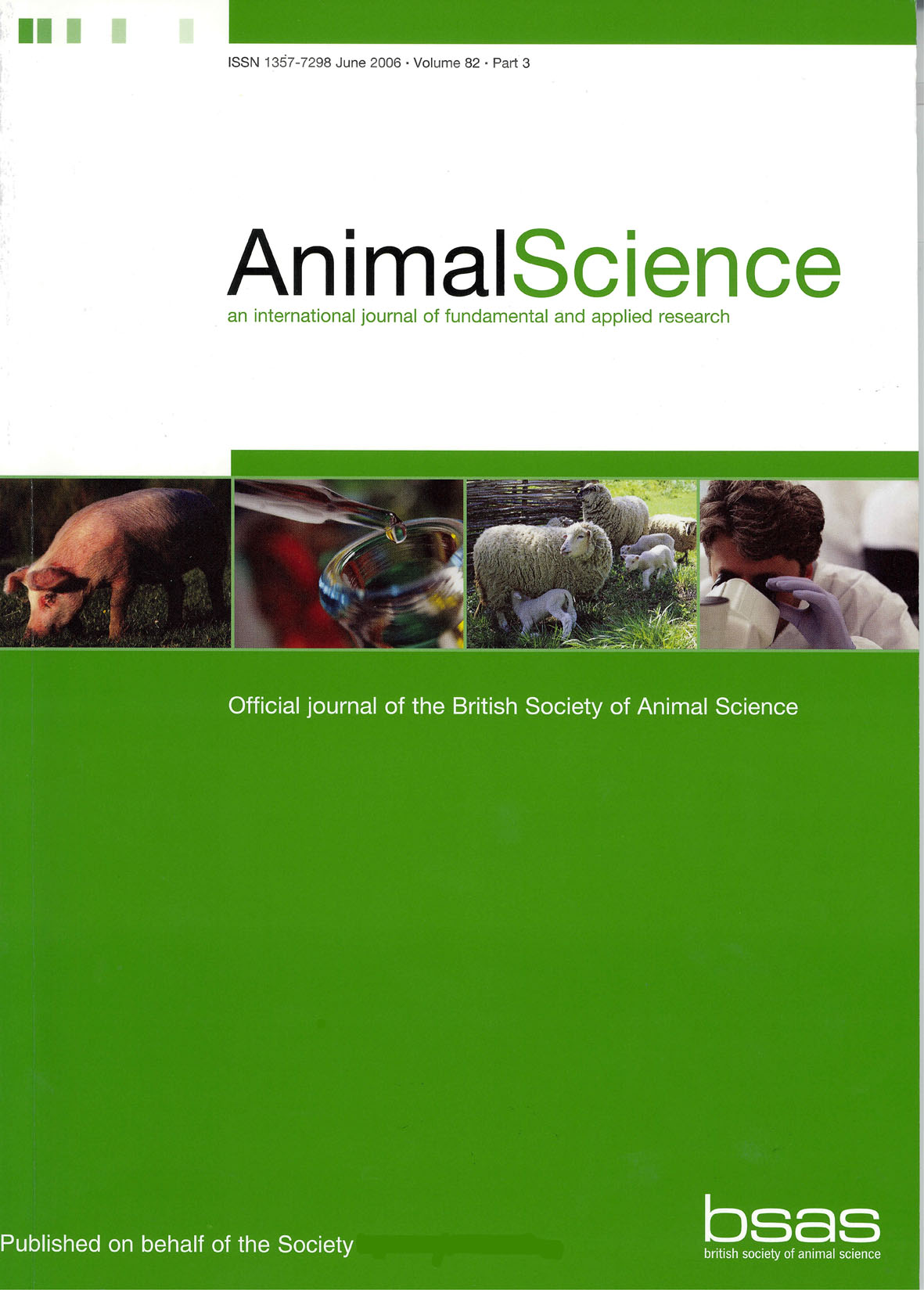Article contents
The response of early weaned pigs to sub-optimal protein diets supplemented with synthetic lysine
Published online by Cambridge University Press: 02 September 2010
Abstract
Thirty male piglets weaned at 20 days of age were fed on either a control diet with 20% crude protein containing 1·1 % lysine or one of two diets with 14·6 or 16·6% crude protein. Synthetic lysine was added to the latter two diets at the rate of 0·00, 0·18, 0·36 and 0·54% to provide four diets with 14·6% crude protein and 0·54, 0·72, 0·90 or 1·08% lysine and four diets with 16·6% crude protein and 0·72, 0·90, 1·08 or 1·26% lysine. All diets were offered ad libitum to piglets between 5·5 and 20·0 kg live weight.
Over the live-weight periods 5·5 to 20·0 and 12·0 to 20 kg, live-weight gains and food conversion improved with increasing total lysine to 1·08 % and 0·90 % respectively when pig performance was equal to that achieved on the control diet. The improvement in performance with an increasing level of total lysine during these two periods did not depend on the total protein content of the diet. During the live-weight period 5·5 to 12·0 kg, optimal performance was obtained when pigs were fed on the highest lysine level in the diets with 14·6 and 16·6% crude protein. However, only the diet of 16·6% crude protein promoted pig performance equal to that achieved on the control diet.
Carcass quality did not respond to lysine supplementation independently of protein level. With thedietof 14·6% crude protein, optimal carcass quality was obtained with 0·90 % lysine but was significantly poorer than that for the control. With the diet of 16·6% crude protein, carcass quality improved over the entire range of lysine supplementation and with 1·26% lysine was superior to that for the control.
- Type
- Research Article
- Information
- Copyright
- Copyright © British Society of Animal Science 1978
References
REFERENCES
- 6
- Cited by


